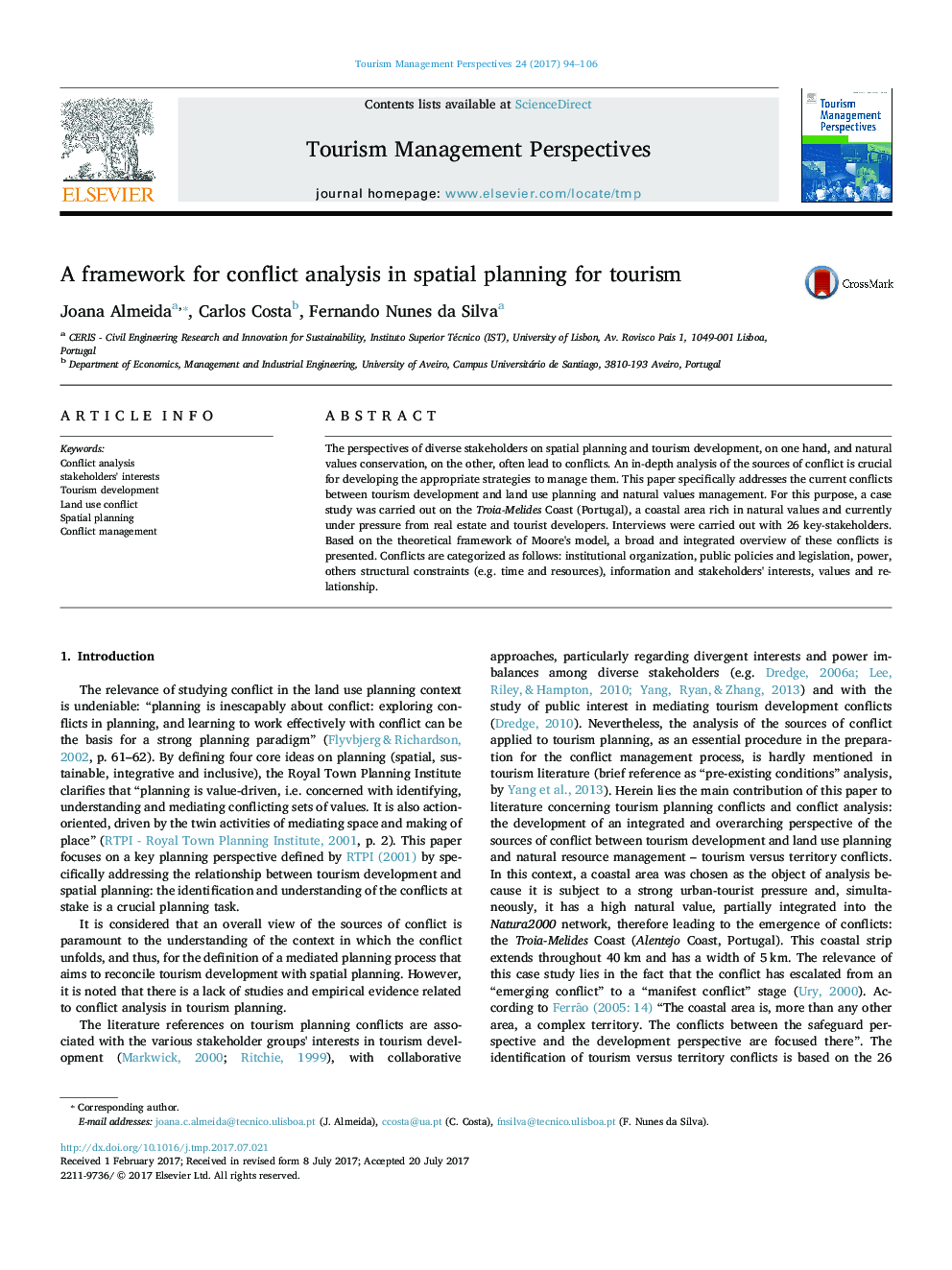| Article ID | Journal | Published Year | Pages | File Type |
|---|---|---|---|---|
| 5108747 | Tourism Management Perspectives | 2017 | 13 Pages |
Abstract
The perspectives of diverse stakeholders on spatial planning and tourism development, on one hand, and natural values conservation, on the other, often lead to conflicts. An in-depth analysis of the sources of conflict is crucial for developing the appropriate strategies to manage them. This paper specifically addresses the current conflicts between tourism development and land use planning and natural values management. For this purpose, a case study was carried out on the Troia-Melides Coast (Portugal), a coastal area rich in natural values and currently under pressure from real estate and tourist developers. Interviews were carried out with 26 key-stakeholders. Based on the theoretical framework of Moore's model, a broad and integrated overview of these conflicts is presented. Conflicts are categorized as follows: institutional organization, public policies and legislation, power, others structural constraints (e.g. time and resources), information and stakeholders' interests, values and relationship.
Related Topics
Social Sciences and Humanities
Business, Management and Accounting
Tourism, Leisure and Hospitality Management
Authors
Joana Almeida, Carlos Costa, Fernando Nunes da Silva,
